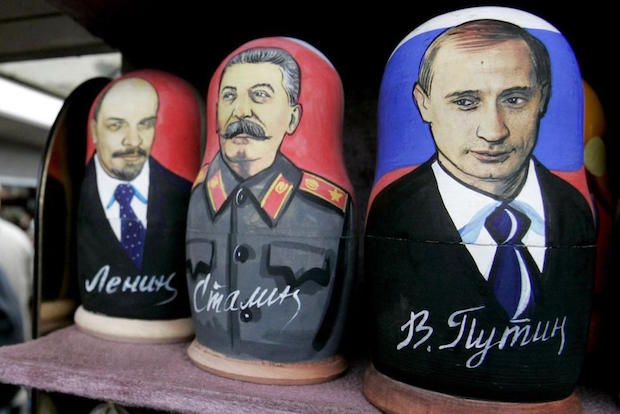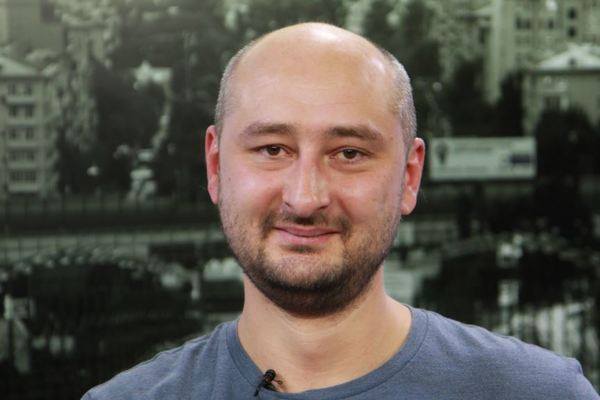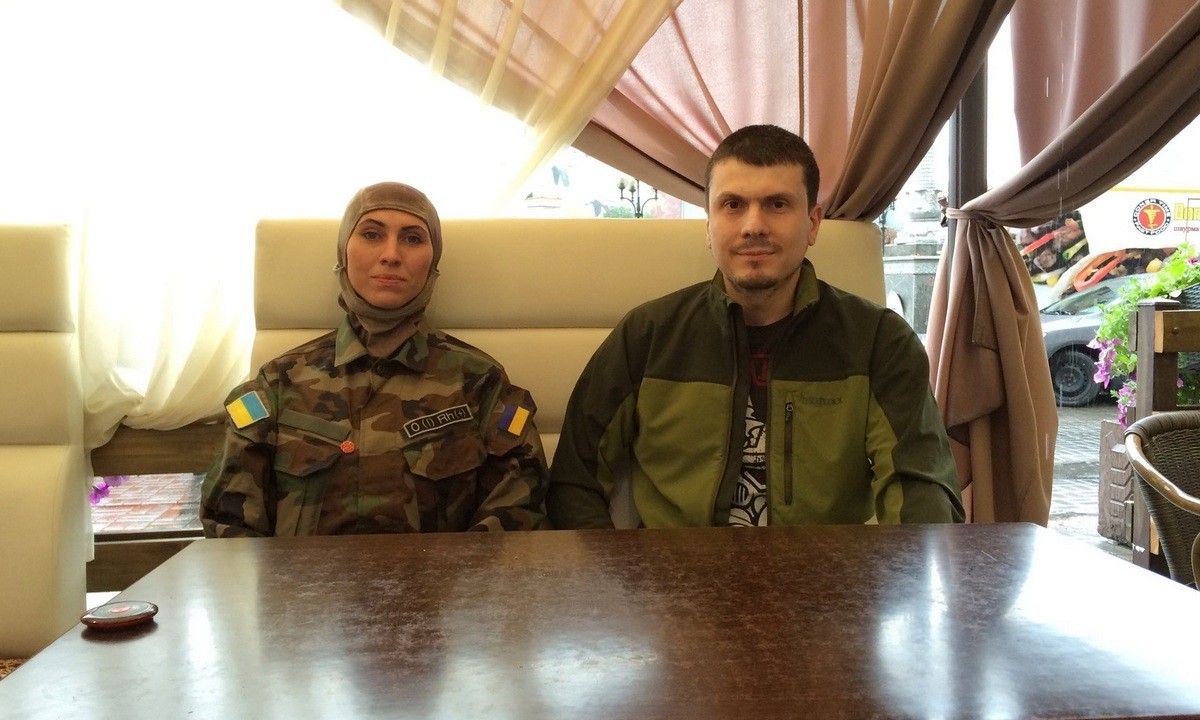The Kremlin has been very busy lately, inside and outside of Russia. Every day it seems something remarkable comes to light about Putin or Russia that just begs for comment if not deep analysis.
A week or so ago, the jaw-dropping conclusions of the UK’s Litvinenko Inquest grabbed international headlines with its 328-page report revealing a brutally dark side of Russia’s security state, one in which a scandalous poisoning with the rare nuclear isotope polonium 210 was traced all the way to the top echelons of power in the Kremlin, including Putin himself.
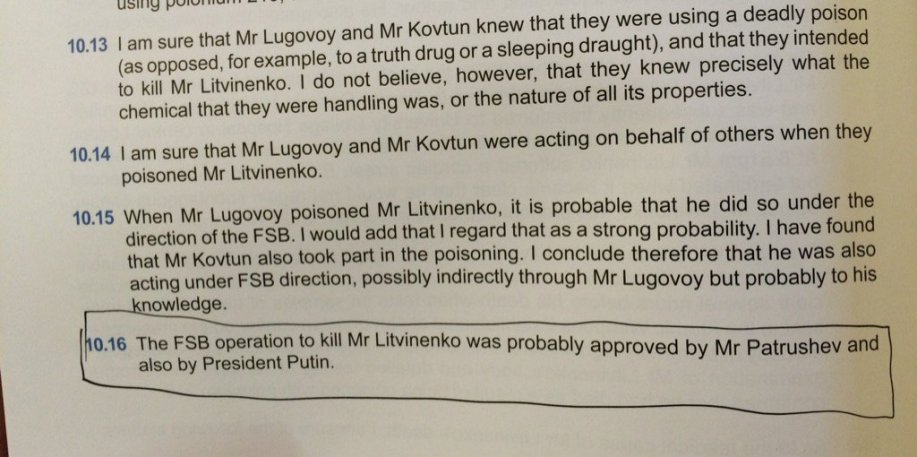 Meanwhile Russia’s official investigation into last year’s assassination of prominent Putin critic Boris Nemtsov a stone’s throw from the Kremlin has essentially concluded and is about to be presented to Russia’s courts for resolution, even though nobody really believes the case is anywhere near to finding the true assassins, their aiders and abettors, and the organizers of the hit.
Meanwhile Russia’s official investigation into last year’s assassination of prominent Putin critic Boris Nemtsov a stone’s throw from the Kremlin has essentially concluded and is about to be presented to Russia’s courts for resolution, even though nobody really believes the case is anywhere near to finding the true assassins, their aiders and abettors, and the organizers of the hit.
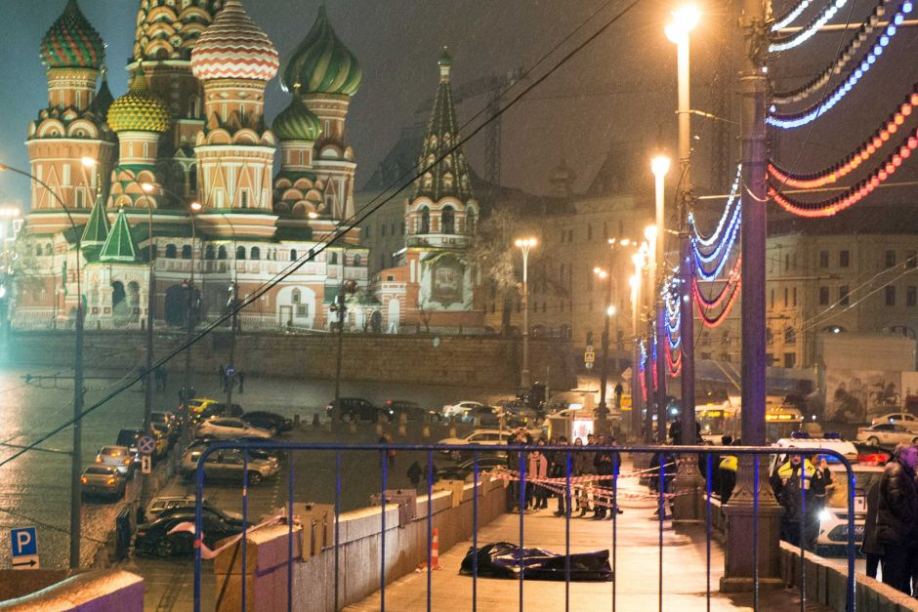 Days after the Litvinenko report, the BBC aired its Panorama documentary “Putin’s Secret Riches” which follows a money trail of an alleged highly corrupt circle of Russian elites who have helped Putin skim 40 billion dollars from Russia’s federal budget, making him the richest man in Europe.
Days after the Litvinenko report, the BBC aired its Panorama documentary “Putin’s Secret Riches” which follows a money trail of an alleged highly corrupt circle of Russian elites who have helped Putin skim 40 billion dollars from Russia’s federal budget, making him the richest man in Europe.
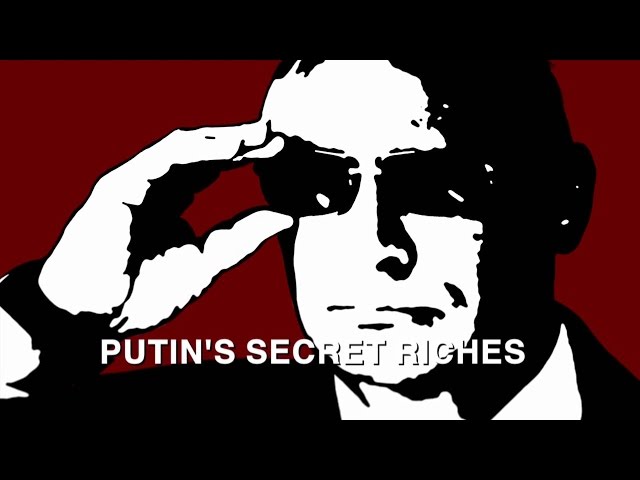 These sensational stories of high-profile political murders and corruption come in the context of Russia’s equally sensational political crackdown on anyone not towing the official pro-Putin, pro-Kremlin line, particularly escalated since Russia crossed international bounds by invading its once closest ally and neighbor, Ukraine. Peaceful protests, including anti-war protests, are now a criminal act under Russian law, for which people are actually being sent away for years to labor camps.
These sensational stories of high-profile political murders and corruption come in the context of Russia’s equally sensational political crackdown on anyone not towing the official pro-Putin, pro-Kremlin line, particularly escalated since Russia crossed international bounds by invading its once closest ally and neighbor, Ukraine. Peaceful protests, including anti-war protests, are now a criminal act under Russian law, for which people are actually being sent away for years to labor camps.
The crackdown on dissent is aided by increasingly commonplace and dangerous propaganda against Russia’s “internal enemies” who aren’t “true Russians” if they don’t support Putin. Russian media and the Kremlin have referred to opposition politicians and activists as well as independent thinkers and scholars as “traitors,” members of “a fifth column” who work at the behest of subversive Western powers (US State Department is a favorite) to infiltrate and take down Russia, the perennial victim of Western conspiracies. This paranoid sounding narrative has been used in a wide variety of settings to marginalize and shut down Russians and organizations.
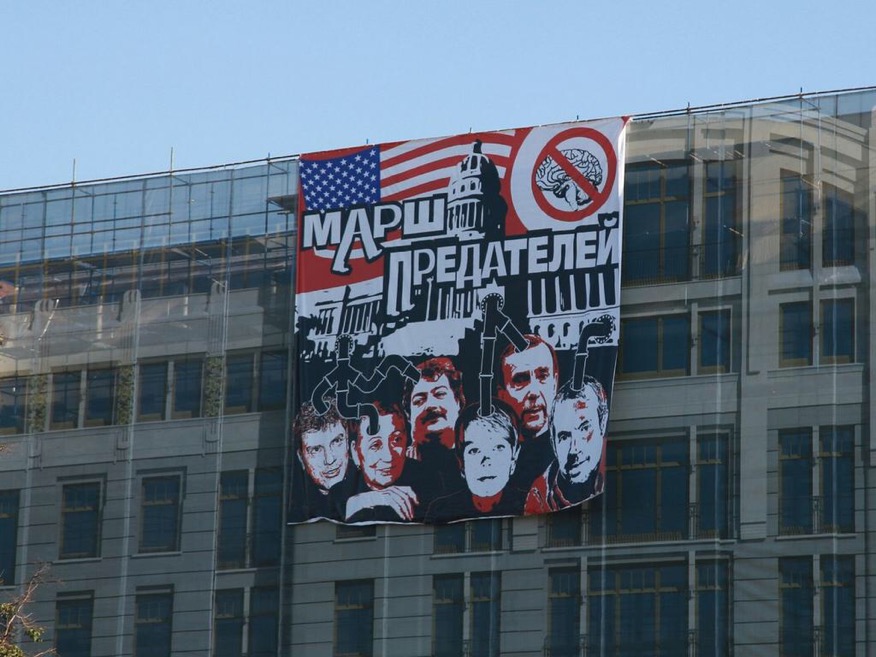 In recent days, pro-Kremlin officials in Chechnya, including the head of state Ramzan Kadyrov, widely considered to be connected to several political assassinations, have unleashed open threats, including one featuring Kadyrov’s dog “Tarzan” bearing his teeth, to liberal media organizations, journalists, activists, and politicians, prompting international human rights organizations to plead with Putin personally to condemn the threatening attacks.
In recent days, pro-Kremlin officials in Chechnya, including the head of state Ramzan Kadyrov, widely considered to be connected to several political assassinations, have unleashed open threats, including one featuring Kadyrov’s dog “Tarzan” bearing his teeth, to liberal media organizations, journalists, activists, and politicians, prompting international human rights organizations to plead with Putin personally to condemn the threatening attacks.
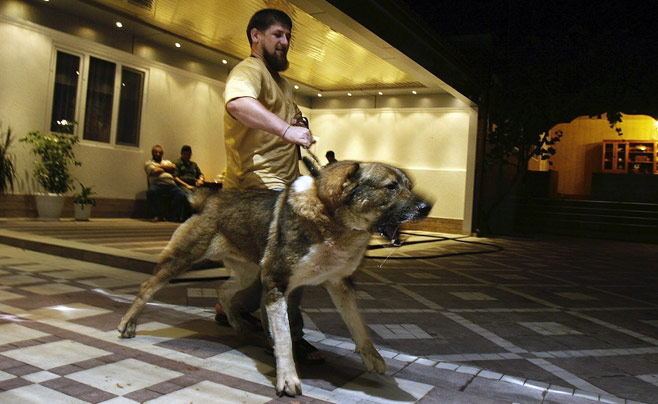 The Kremlin’s response on all these accounts has been woefully silent, issuing at most brief, perfunctory and dismissive statements, if at all, usually through Putin’s press secretary Dmitry Peskov. The Litvinenko inquiry was a joke. The Nemtsov case is out of our hands. The BBC story is pure rubbish. Kadyrov is a skilled leader, and he didn’t really mean what you think.
The Kremlin’s response on all these accounts has been woefully silent, issuing at most brief, perfunctory and dismissive statements, if at all, usually through Putin’s press secretary Dmitry Peskov. The Litvinenko inquiry was a joke. The Nemtsov case is out of our hands. The BBC story is pure rubbish. Kadyrov is a skilled leader, and he didn’t really mean what you think.
Instead of meaningfully addressing any of these consequential matters, Putin has been expounding on Russian and Soviet history, one of his favorite subjects and one he fancies himself an expert on. These statements are revealing not only for their insights into Putin’s interpretation of history but they provide some clues into his vision for present-day Russia.
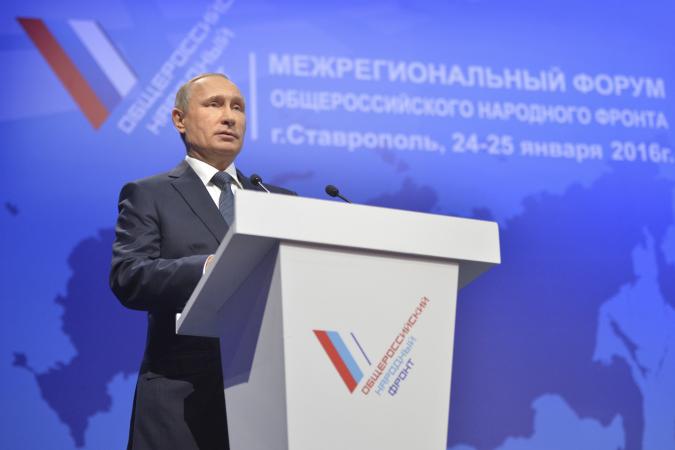 One of Putin’s recent remarks to capture the world’s attention was made in a 2014 speech in which he infamously rehabilitated the Molotov-Ribbentrop Pact. That Pact, also known as the non-aggression agreement between Nazi Germany and the USSR, not only contained a secret agreement to divide up Europe between Stalin and Hitler, but it led to World War II, the bloodiest war in modern history. Without mentioning the secret territorial aspects, Putin stated that Stalin had no choice in signing the non-aggression pact with Hitler because he wanted to avoid war, which he sees as a wise and laudable goal. Putin’s statement not only directly contradicted the accepted view of the Russian state that the notorious Pact was immoral. It also contradicted Putin’s own statement made in a speech in Poland denouncing the Nazi-Soviet Pact just a few years earlier in 2009.
One of Putin’s recent remarks to capture the world’s attention was made in a 2014 speech in which he infamously rehabilitated the Molotov-Ribbentrop Pact. That Pact, also known as the non-aggression agreement between Nazi Germany and the USSR, not only contained a secret agreement to divide up Europe between Stalin and Hitler, but it led to World War II, the bloodiest war in modern history. Without mentioning the secret territorial aspects, Putin stated that Stalin had no choice in signing the non-aggression pact with Hitler because he wanted to avoid war, which he sees as a wise and laudable goal. Putin’s statement not only directly contradicted the accepted view of the Russian state that the notorious Pact was immoral. It also contradicted Putin’s own statement made in a speech in Poland denouncing the Nazi-Soviet Pact just a few years earlier in 2009.
Earlier in 2005 Putin made one of his most dramatic remarks about Russian history, stating that the collapse of the Soviet Union was the greatest catastrophe of the century. Most Western historians have focused on Stalin’s role in creating a destructive state. From the man-made Holodomor famine in the 1920s to the widespread purges of the intelligentsia, Stalin has been the archetypal repressive 20th-century dictator, second only perhaps to Hitler.
I’ve always felt that Stalin was such an awful historical figure that it would be a no-brainer for Russians to use him to absolve themselves of so much pain and guilt. Stalin could be for post-Soviet Russia what Hitler was for post-Nazi Germany. Russians could hold Stalin and his paranoid and destructive ideology and security state responsible, accept and reconcile that bloody and tragic Soviet past, and move on with the building of a new and modern non-totalitarian Russia.
But Russians have been slow to accept Stalin as a bad guy. Some of this is the result of the lack of access to historical information, much of which was concealed from the public until relatively recently. But that doesn’t explain it all. Surely propaganda at the time played the more significant role in shaping attitudes toward Stalin. Soviet citizens were immersed in an atmosphere that idealized Stalin to god-like cult status, particularly when it comes to the glorious Soviet victory over fascism in World War II, where greater Russia (the Soviet Union) endured staggering losses of people. That victory belongs to Stalin and the Soviet people. Westerners too espouse this view, articulated in a similar fashion.
Even when the Soviet archives were unsealed during Gorbachev’s glasnost era, and people began to see undeniable confirmation of the tremendous devastation and loss of life caused directly by Stalin and Stalinist policies, Russians stubbornly held on to their mythology. The reality was too painful, too raw, to embrace.
My mother exemplified the impenetrable ambivalence many Soviet citizens felt toward Stalin. She knew Stalin was a brutal tyrant. As a child in Kiev and Mariupol, she had heard stories about friends and family who were taken away in the middle of the night and never seen or heard from again. Yet when it came to talk of the war, she almost uncontrollably softened her stance, saying Stalin had been betrayed and did what he could against a greater evil.
It’s hard to condemn someone you think had a hand in saving you or members of your family from certain death. And I suspect that’s the way many Soviets, especially Jews, felt, having been traumatized during the war years.
Today in Russia, there is even less ambivalence about Stalin. Remarkably, it’s not in the expected direction. Stalin is back with a vengeance, but this is Stalin the hero, a cultural icon to celebrate, not a tyrant to deplore. Russians put GULAG history aside and display Stalin’s ubiquitous image not just without shame, but proudly. There’s even an app to make your selfies look like Stalin. It’s almost as if last century’s cult of Stalin has never left the Russian soul.
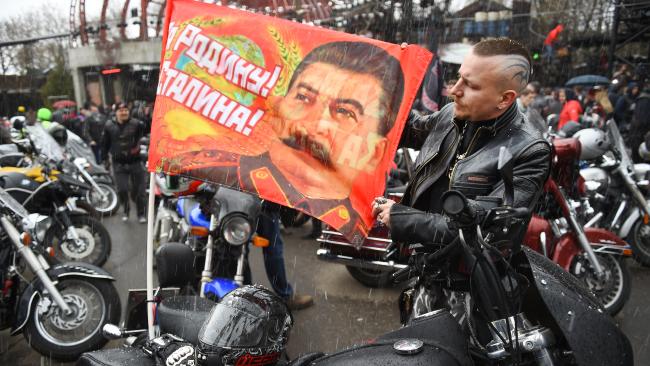
It’s not insignificant that Stalin’s rebirth and rehabilitation under Putin coincides with Putin’s own growing cult status, particularly since Russia invaded and occupied Ukraine, seized Crimea and started bombing Syria. Stalin’s comeback is convenient, perhaps even necessary for Putin, who seems to be piggy-backing his own desire to appear a strong military leader on Stalin’s wartime legacy as a heroic military leader who raised Russia’s status as a respected world power.
Putin has now confirmed Stalin’s resurgence and rehabilitation by very publically taking his side in an ideological debate between Stalin and founding father of the Russian Revolution, Putin namesake Vladimir Lenin.
On the anniversary of Lenin’s death, January 21, at a meeting of the Presidential Council on Science and Education, Interfax reported that Putin publically condemned Lenin and much of Lenin’s revolutionary ideology.
Putin’s statements came in the context of discussions about spurring new ideas and innovation in Russia. Mikhail Kovalchuk, director of the Kurchatov Institute asked whether Putin agreed with a line from a famous poem about the Bolshevik Revolution written by Boris Pasternak, “Sublime Malady,” wherein the poet describes how the charismatic Lenin was able to “steer” the new Soviet nation by steering the flow of ideas. Kovalchuk suggested that perhaps Russia’s scientific and educational institutions today can likewise generate ideas and steer them in the right direction.
I’m not sure exactly what Kovalchuk had in mind. But it seems likely that he was merely offering a softball opportunity for Putin to agree that Russia’s institutions are capable of providing new ideas that can make Russia prosper. Perhaps Kovalchuk was even showing off his intellectualism with a reference to a great Russian poet and winner of a Nobel Prize in literature.
But Putin seems to have taken his own opportunity, by sounding off with a surprisingly biting condemnation of Lenin’s foundational principles of the Soviet Union, suggesting some ideas of his own.
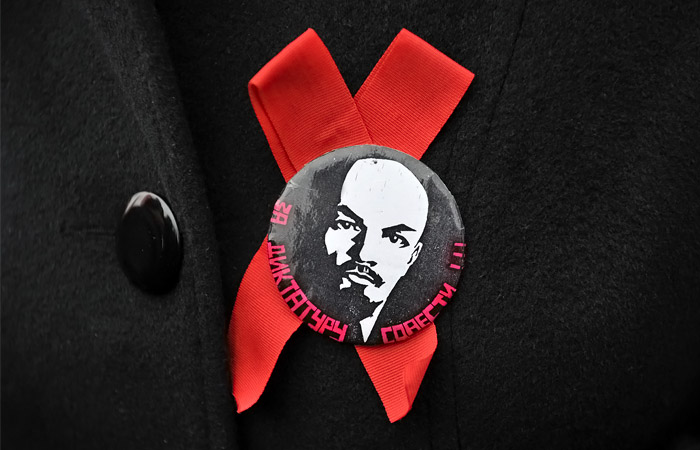 Putin responded with an interesting end-justify-means statement. In principle, he said, steering the flow of ideas was all well and good, provided the ideas were ones that “lead to the right result.” He went on to say that certain of Lenin’s ideas, including that of autonomy, were the equivalent of placing an “atomic bomb under the building that we call Russia,” a bomb that would inevitably and eventually explode, causing the ruinous collapse of the Soviet Union decades later. He also added derisively, “and we didn’t need a world revolution either,” as if that too was another one of Lenin’s hare-brained ideas.
Putin responded with an interesting end-justify-means statement. In principle, he said, steering the flow of ideas was all well and good, provided the ideas were ones that “lead to the right result.” He went on to say that certain of Lenin’s ideas, including that of autonomy, were the equivalent of placing an “atomic bomb under the building that we call Russia,” a bomb that would inevitably and eventually explode, causing the ruinous collapse of the Soviet Union decades later. He also added derisively, “and we didn’t need a world revolution either,” as if that too was another one of Lenin’s hare-brained ideas.
This isn’t the first time Putin has dissed Lenin. But this time he really pulled no punches, pointing the finger directly at Lenin himself, whose body still lays in a mausoleum in Red Square for all to revere. Putin’s statements were few but so startling that some news agencies added an editorial comment after “autonomy,” explaining that Putin was referring to regional autonomy. We soon learned that Putin did in fact mean autonomy of the republics that comprised the Soviet Union.
A few days later, Putin elaborated on what he meant by “autonomy,” adding that Lenin believed all the republics of the Soviet Union should be equal, and further, that they each had the right to secede from the Soviet Union. “Cultural autonomy is one thing,” said Putin, but the idea that the nation was a federation of states that had that level of autonomy was absolutely wrong. And he made a point of adding that Stalin had a different idea of a unitary nation, an idea Putin said he agreed with.
Not only was Lenin’s idea of autonomy wrong, according to Putin, but Lenin was also wrong in drawing “arbitrary” boundaries and borders throughout the Soviet Union. Not surprisingly given current events, Putin cites Donbas as an example of the destructive legacy of Lenin’s ideas. Donbas (portmanteau from Donets Basin), of course, is the industrial border region between Russia and Ukraine which happens to be the territory of Ukraine that Russia now occupies, under the guise of the proxy self-declared “People’s Republics” of Donetsk and Luhansk, also known as DNR and LNR.
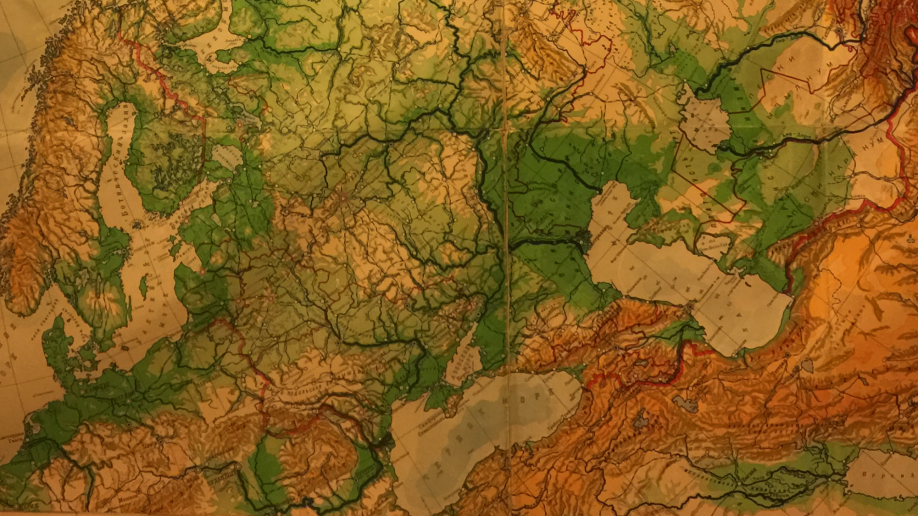 For almost two years Putin has vehemently denied Russia’s role in the battle over this territory. Recently, however, he’s budged a bit and admitted Russia has, in fact, had a military role in Ukraine. After Putin’s statements on Lenin’s bad ideas, it’s hard not to connect the views espoused there with Putin’s recent actions in Ukraine, especially Donbas and Crimea.
For almost two years Putin has vehemently denied Russia’s role in the battle over this territory. Recently, however, he’s budged a bit and admitted Russia has, in fact, had a military role in Ukraine. After Putin’s statements on Lenin’s bad ideas, it’s hard not to connect the views espoused there with Putin’s recent actions in Ukraine, especially Donbas and Crimea.
But something even bigger is going on here. It’s 2016 and Putin is preoccupied with ideas from 1917, almost a 100 years ago. Russia’s economy is tanking, benefits are cut to elderly pensioners, truckers are protesting tremendous fee hikes, Russians are leaving Russia in record numbers, and Putin is engaged in taking back territory – by force – that he considers was wrongly and arbitrarily “given” to another state. Shouldn’t Putin be paying more attention to Russia’s infrastructure and people within its current vast territory rather than bemoaning the foundations of the Soviet Union?
Putin’s remarks are disturbing for other reasons too. First, Putin is justifying his war in Ukraine by invoking an international order that not only no longer exists, but has been replaced with a new international order formed by mutual agreement, including Russia. Putin is at once criticizing the rules of an accepted international order and breaking them ex ante. It’s not as if Russia’s foreign minister called an international conference to discuss Russia’s concerns through diplomacy. No, Russia used force, weapons, and tanks, first sending tens of thousands of troops to Crimea, and then sending operatives to Donbas in eastern Ukraine. As a result 9000 thousand lives have been lost, over a million people have been displaced.
Second, where does such thinking end? Isn’t the logical consequence of Putin’s idea of using unilateral military force to right perceived past wrongs in one territory that this conduct will be repeated elsewhere, on other borders and in other regions? Whose territorial integrity will Russia feel at liberty to violate next? Belarus? Georgia? Estonia?
Third, can the world community abide by a Russia that unilaterally redraws territorial borders in the 21st Century? What does state sovereignty mean under these circumstances? If Russia can break all the rules and then define its own terms anew, what’s to stop other nations from doing the same? Doesn’t this bring even more chaos and disorder to the world, at a time when we’re ostensibly engaged in building coalitions to address urgent issues, including terrorism and the refugee crisis?
Finally, Putin has again praised Stalin, and not in the usual way, that is, not directly connected to the Great Patriotic War, but with foundational principles of a governing state. It seems that like Stalin, and unlike Lenin, Putin doesn’t believe that states are equal. Putin’s ideas, like Stalin’s ideas, are imperialistic, suggesting some states are better, stronger, more deserving to rule over others. Taken to their logical conclusion, Putin’s ideas suggest that he believes Ukraine, Kazakhstan, Georgia, and the rest of the SSR’s could still have remained one unit, under Moscow rule, had Stalin’s good ideas prevailed over Lenin’s bad ones. Had the republics not had the right to secede, to declare their independence, the Soviet Union would not have collapsed, and might still be here today, run by Putin. That idea is not exactly a beacon of modern enlightened civilized thought.
It’s worth noting how interesting it is that the poet whose quote instigated Putin’s recent derogatory remarks about Lenin and the Soviet Union is Boris Pasternak, an artist deeply affected by Russia’s problems of the last century. Pasternak is best known in the West as the author of Dr. Zhivago. In Russia, he’s more known as a member of Russia’s famed and tragic 20th-century intelligentsia whose work addressed Russia’s turbulent revolutionary and post-revolutionary times. Unlike many of his contemporaries, Pasternak was never prosecuted or jailed during the Stalinist purges. He survived but was scarred by the burden of the oppressive climate the revolution had brought. Pasternak first supported but came to reject Soviet revolutionary thought because artistic expression and individualism were always to be subordinate to the state. Pasternak was also deeply troubled by how the revolution divided Russian society into classes of enemies and allies.
Although Russia’s not undergoing a revolution as it did 100 years ago, some parallels are evident. Russia today is in crisis. Times are turbulent, dangerously chaotic and very divisive. Putin’s been in power for over 15 years, and there doesn’t seem to be an end in sight. He recently stated he was undecided about running for yet another term in 2018. With Putin playing such a prominent and controlling role in every aspect of Russian society, often referred to as a “power vertical,” it’s hard to see him letting go or even who in his circle of elites could take his place. Putin tried Medvedev, who didn’t work out so well. Could Putin trust someone else, someone who would protect him and his legacy?
Recently Mikhail Khodorkovsky, who served a decade in jail essentially for having criticized Putin and Russia’s corruption economy, said Russia may be in for a revolution as Putin has failed to create any conditions for the passing on of power, and the country is headed in an unsustainable direction. Two weeks later, Russia issued a warrant in absentia for his arrest–again.
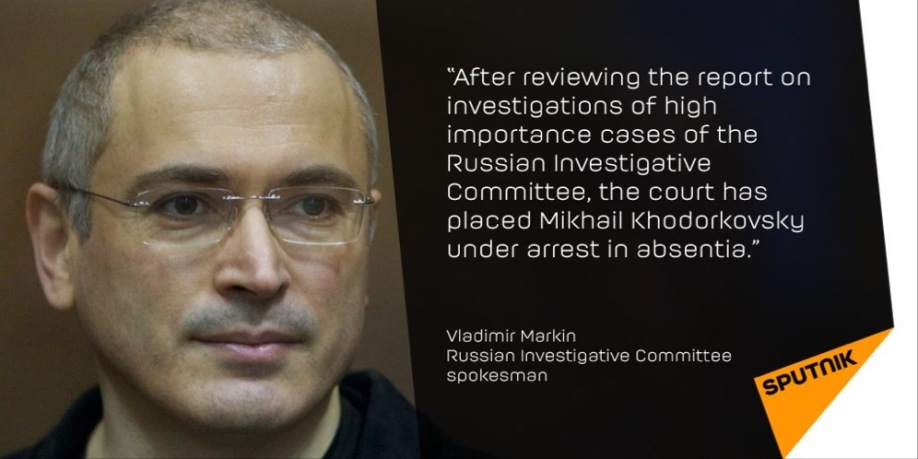 Such mistreatment of Khodorkovsky and Russia’s opposition politicians and activists generally is indeed reminiscent of Pasternak’s Soviet era when Kremlin elites divided Russian society into patriots and traitors. Again it’s Russia’s intelligentsia that is under fire. In Putin’s Russia, artists and human rights activists are today’s traitors and enemies. They are enemies for wanting the state to respect its own Constitution which espouses democratic liberal European values, for wanting free expression and fair elections. They are enemies for wanting to live in a decent country governed not by the whims of a corrupt security state that arrests and interrogates critics and their families at any time of day or night, but by the rule of law. They want to be part of the international community and have some manner of a dignified and predictable future.
Such mistreatment of Khodorkovsky and Russia’s opposition politicians and activists generally is indeed reminiscent of Pasternak’s Soviet era when Kremlin elites divided Russian society into patriots and traitors. Again it’s Russia’s intelligentsia that is under fire. In Putin’s Russia, artists and human rights activists are today’s traitors and enemies. They are enemies for wanting the state to respect its own Constitution which espouses democratic liberal European values, for wanting free expression and fair elections. They are enemies for wanting to live in a decent country governed not by the whims of a corrupt security state that arrests and interrogates critics and their families at any time of day or night, but by the rule of law. They want to be part of the international community and have some manner of a dignified and predictable future.
Russia’s propaganda machine is at full-throttle against critics of Putin’s regime and Putin’s ideas. As the first anniversary of the assassination of Boris Nemtsov approaches, it’s staggering to think that the Kremlin has done nothing to tone down the deadly rhetoric against anyone with a voice or idea different from Putin. As a result, fear now dominates Russian society, even fear of more assassinations.
It remains to be seen whether Putin’s ideas will be judged better or worse than that of his predecessors. For now, he seems to be thinking and living in the past, and trying to take Russia and the world back with him.




